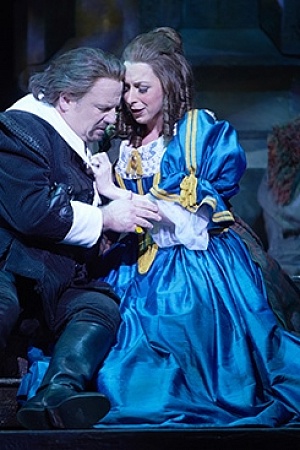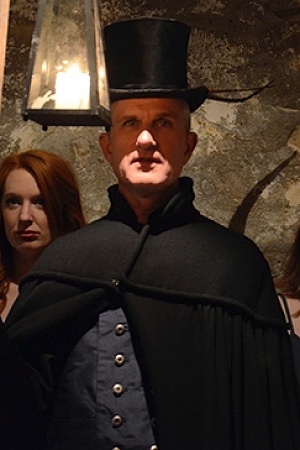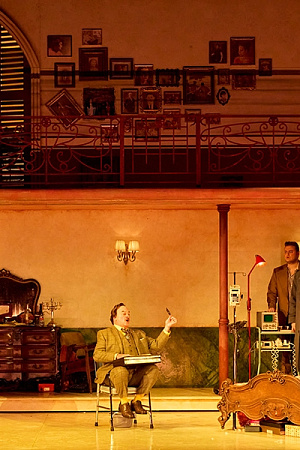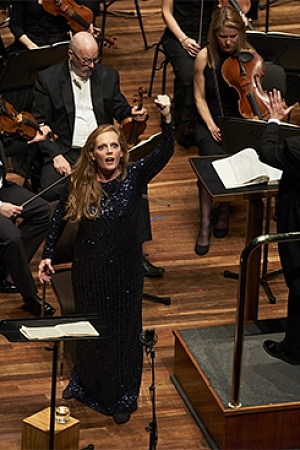Thaïs (Opera Australia) ★★★★1/2
Few singers make riveting autobiographers, it must be said, but one who should have penned her memoirs was Sybil Sanderson (1864–1903). She seems to have been too busy, on and off the stage. Hers was the kind of short, turbulent life that Puccini might have done something with – ‘the golden girl from Sacramento’. Daughter of a chief justice of the Supreme Court of California, trained in Paris under Mathilde Marchesi (Melba’s teacher), the young American was only twenty-two when she auditioned for Jules Massenet, composer of Hérodiade (1881) and Manon (1884).
Massenet was smitten. ‘What a fantastic voice! It went from low G to top G, three octaves, both at its loudest and softest. I was astonished, stupefied, overwhelmed’. Massenet has discovered his Esclarmonde. Sanderson created the fiendish role in 1889. Then (after Werther in 1892) came Thaïs, which Massenet also wrote for her. The opera had its première at the Paris Opéra on 16 March 1894. Sanderson was a sensation, in the process accidentally exposing her bust (seventy-nine years before Carol Neblett appeared naked, briefly, in this role, opera’s first full-frontal nude).
Continue reading for only $10 per month. Subscribe and gain full access to Australian Book Review. Already a subscriber? Sign in. If you need assistance, feel free to contact us.










Leave a comment
If you are an ABR subscriber, you will need to sign in to post a comment.
If you have forgotten your sign in details, or if you receive an error message when trying to submit your comment, please email your comment (and the name of the article to which it relates) to ABR Comments. We will review your comment and, subject to approval, we will post it under your name.
Please note that all comments must be approved by ABR and comply with our Terms & Conditions.